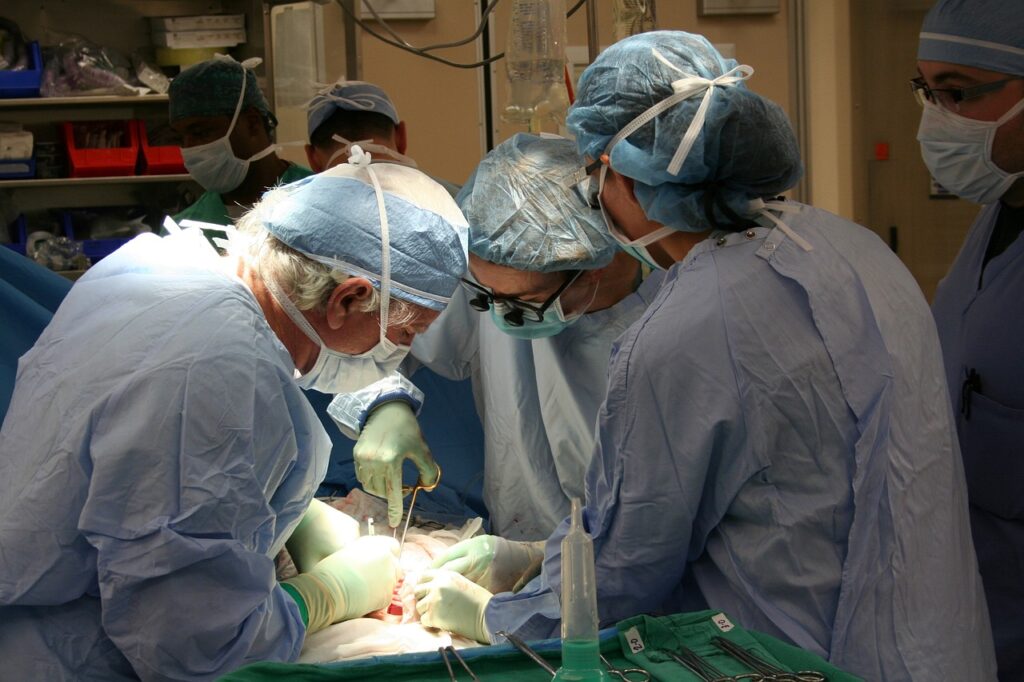Medical tourism is a rapidly growing industry, with millions of patients traveling across borders each year to seek high-quality medical care at affordable prices. India has emerged as a top destination for medical tourism, attracting patients from around the globe. This blog by Hikari Sparks explores why India is a preferred choice for medical treatments and what makes it stand out in the global healthcare landscape.
What is Medical Tourism? Medical tourism involves traveling to another country for medical care. This practice has gained popularity due to the rising costs of healthcare in many countries, lengthy wait times for treatment, and the availability of advanced medical procedures abroad. Patients can receive high-quality care, often at a fraction of the cost they would incur in their home countries.
Why Choose India for Medical Tourism? Several factors make India a leading destination for medical tourism:
High-Quality Healthcare
- World-Class Hospitals: India is home to numerous JCI (Joint Commission International) and NABH (National Accreditation Board for Hospitals & Healthcare Providers) accredited hospitals that meet international standards of care.
- Skilled Medical Professionals: Indian doctors, surgeons, and healthcare staff are highly trained, often with international experience and qualifications.
Affordable Treatment Costs
- Cost-Effective Care: Medical procedures in India are significantly cheaper compared to Western countries. For example, heart surgery in India can cost one-tenth of what it does in the United States.
- Comprehensive Packages: Many hospitals offer all-inclusive medical packages covering the cost of treatment, accommodation, and post-operative care.
Advanced Medical Technology
- State-of-the-Art Facilities: Indian hospitals are equipped with the latest medical technology and infrastructure, ensuring patients receive the best possible care.
- Cutting-Edge Treatments: India offers advanced treatments and procedures, including robotic surgery, organ transplants, and cutting-edge cancer treatments.
No Wait Times
- Immediate Attention: Unlike many countries where patients face long wait times for certain procedures, Indian hospitals can often provide immediate or quickly scheduled treatments.
Holistic Approach to Healthcare
- Complementary Therapies: India is known for its holistic approach to healthcare, combining modern medicine with traditional practices such as Ayurveda, Yoga, and Naturopathy.
- Personalized Care: Patients receive personalized treatment plans tailored to their specific needs and conditions.
Language and Cultural Comfort
- English Proficiency: English is widely spoken in India, making communication easier for international patients.
- Cultural Sensitivity: Indian hospitals and staff are accustomed to treating international patients and offer services catering to diverse cultural and dietary preferences.
Popular Medical Treatments in India India offers a wide range of medical treatments, including but not limited to:
- Cardiac Care: Heart surgeries, angioplasties, and bypass surgeries.
- Orthopedic Surgery: Knee and hip replacements, spinal surgeries.
- Cosmetic Surgery: Rhinoplasty, liposuction, and facelifts.
- Oncology: Advanced cancer treatments, chemotherapy, and radiation therapy.
- Fertility Treatments: IVF, surrogacy, and other assisted reproductive technologies.
- Neurosurgery: Brain surgeries and treatments for neurological disorders.
- Transplants: Kidney, liver, and bone marrow transplants.
Medical Tourism Process in India The process of seeking medical treatment in India typically involves the following steps:
- Initial Consultation: Patients can consult with Indian doctors online or through medical tourism facilitators to discuss their medical condition and treatment options.
- Travel Arrangements: Once the treatment plan is finalized, patients can make travel arrangements, including obtaining a medical visa if required.
- Treatment: Upon arrival, patients are received by hospital representatives, and the treatment process begins.
- Post-Treatment Care: After the procedure, patients receive post-operative care and follow-up consultations to ensure successful recovery.
- Tourism Opportunities: Patients can also explore India’s rich cultural heritage and tourist attractions during their stay.
Medical Tourism in India: A Case Study A recent study highlighted the experiences of international patients who traveled to India for medical treatment. The findings revealed high satisfaction rates with the quality of care, cost savings, and overall experience. Patients praised the professionalism of Indian healthcare providers and the seamless coordination of services, from consultation to recovery.
Challenges and Considerations While India offers numerous advantages, potential medical tourists should consider:
- Travel Logistics: Planning travel, accommodations, and understanding visa requirements.
- Cultural Differences: Adapting to a new cultural environment can be challenging, although most hospitals provide support to ease this transition.
- Post-Treatment Care: Ensuring follow-up care and communication with healthcare providers after returning home.
The Role of Medical Tourism Facilitators Medical tourism facilitators play a crucial role in simplifying the process for international patients. These facilitators offer services such as:
- Consultation Coordination: Connecting patients with the right specialists and hospitals.
- Travel Arrangements: Assisting with visa applications, flight bookings, and accommodation.
- Logistics Management: Handling transportation, language translation, and other logistical needs.
- Patient Support: Providing continuous support throughout the treatment and recovery process.
India’s Medical Tourism Industry: A Growing Market The Indian government and healthcare sector have recognized the potential of medical tourism and are actively promoting it. Initiatives include:
- Healthcare Infrastructure Development: Investing in hospital infrastructure and advanced medical technology.
- Policy Support: Streamlining visa processes and providing special medical visas.
- Marketing and Promotion: Participating in international healthcare expos and marketing campaigns to attract foreign patients.
Future Prospects of Medical Tourism in India The future of medical tourism in India looks promising, with several trends indicating continued growth:
- Telemedicine Expansion: Increased use of telemedicine for pre- and post-treatment consultations.
- Health and Wellness Tourism: Combining medical treatments with wellness programs, such as Ayurvedic retreats and wellness spas.
- Collaborations and Partnerships: Collaborations between Indian hospitals and international healthcare providers to enhance service offerings.
- Innovative Healthcare Solutions: Adoption of artificial intelligence, robotics, and other technological advancements to improve patient care.
India has firmly established itself as a top destination for medical tourism, offering high-quality, affordable, and advanced medical care. The combination of skilled healthcare professionals, state-of-the-art facilities, and a holistic approach to treatment makes India an attractive choice for patients seeking medical procedures abroad


